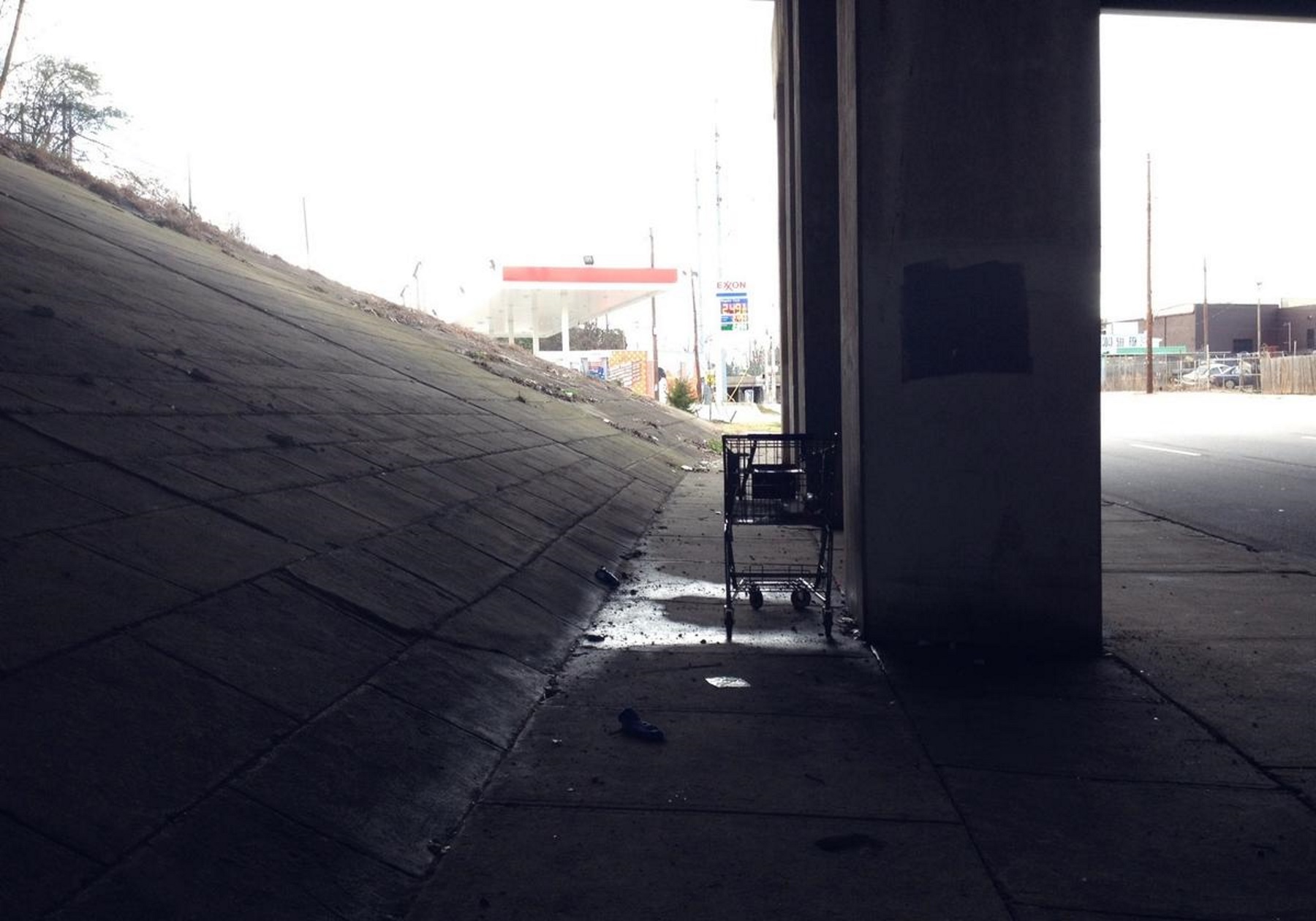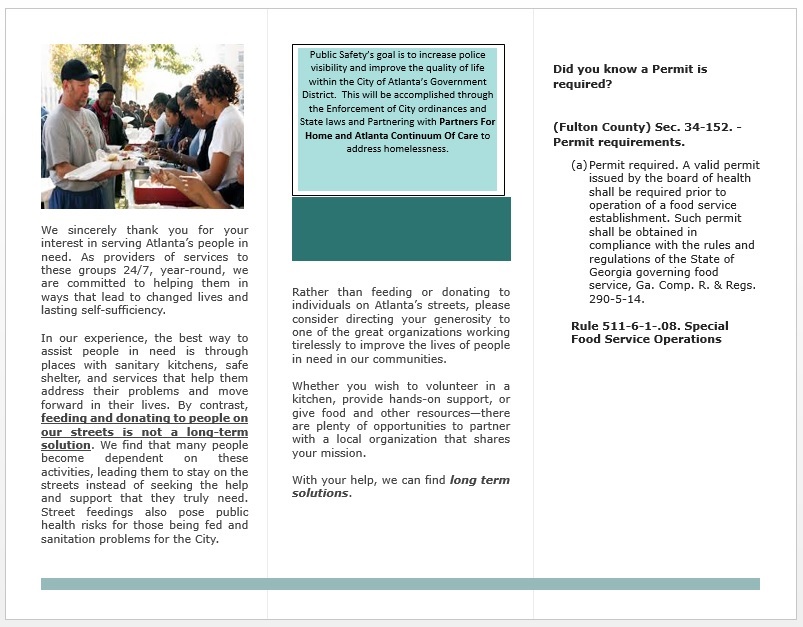In Atlanta, Permits Now Required To Give Meals To Homeless Outdoors

Homeless advocate Marshall Rancifer said he doesn’t plan to pay for a permit to give out food. He said he could better spend that money on serving the homeless.
Stephannie Stokes / WABE
Looking to pass out meals to the homeless outdoors? Now, in Atlanta, you better get a permit.
Homeless advocate Marshall Rancifer learned about the policy this past weekend.
At Hurt Park, he encountered Georgia State University Police giving out flyers to people trying to distribute food.
The flyers, which include the city seal, said that feeding the homeless on streets or in parks requires a permit. Rancifer was shocked.
“I’ve never been required to have a permit. I’ve been feeding people on the streets for 17 years,” Rancifer said.

Permits have always been the law, according to Georgia State University Chief of Police Joseph Spillane. Fulton and DeKalb county boards of health require permits for food safety.
And while he said the groups handing out meals are well-intentioned, they’ve become a problem.
“If you look around the city where these feedings happen, unfortunately, there’s trash everywhere afterwards, and someone has to clean that up,” he said.
Usually the cleanup is left up to campus police or the city, Spillane said, and it’s a drain on their resources.
Now his campus and the city are encouraging groups to give out food indoors — at churches or shelters. Spillane said those are more humane places to serve people.
The effort, he said, is part of a homeless outreach program the police chief started several months ago.
But in the eyes of Rancifer, the homeless advocate, the outdoor meals only seem to be an issue since the closure of the Midtown homeless shelter Peachtree-Pine.
Indeed, that’s about when the Atlanta Police Department said its officers started handing out the flyers.
Rancifer said the problem with directing volunteers to existing shelters and churches is that those places can’t reach all of the people who are unsheltered in the city.
On the other hand, the advocate said he doesn’t plan to pay for a permit to give out food. He said he could better spend that money on serving the homeless.
“When the city starts feeding the unsheltered people, then that’s when I’ll stop,” Rancifer said.
For now, Atlanta Police said their officers are working to make groups aware that permits are necessary and that feeding people on the streets isn’t a long-term solution.
Citations, however, could be possible for violators.








